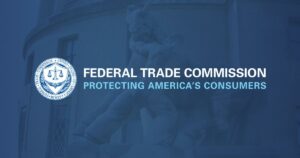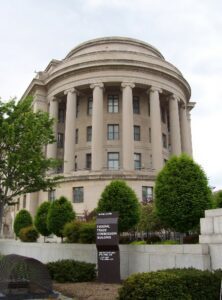 Travelers United strongly supports President Biden’s call to stop junk fees.
Travelers United strongly supports President Biden’s call to stop junk fees.
Our advocacy group completely supports the Presidential call made in the 2023 State of the Union address to eliminate “junk fees.” We have been very active over the past decade on this issue. Travelers United focused on the travel industry but has often spoken about the additional hidden fees attached to the theater, concert tickets, and other sales. In every case, the total price should include all mandatory fees. The FTC can stop drip pricing and junk fees.
A Federal Trade Commission (FTC) rulemaking is far overdue. Consumers are harmed daily by drip-pricing strategies employed by businesses in the United States.
Travelers United’s history provides an excellent example of the general consumer fight for understandable and complete pricing. During the past decade, the FTC studied this issue. It completed economic analyses and wrote reports. Every action concluded that drip pricing and junk fees proves harmful to consumers. Junk fees undermine market competition.
Travelers United agrees with the conclusions of the Institute for Policy Integrity of the NYU School of Law. The FTC can stop drip pricing, hotel resort fees, and junk fees.
Travelers United worked to eliminate drip pricing for a decade — through Congress, DOT, FTC, and State Attorneys General.
Travelers United, the most significant overall travel advocacy group in America, has met with the FTC for a decade about truth in advertising and drip pricing. Our organization worked with the advertising division at the FTC over the last decade.
Our mantra with AGs, DOT, the FTC, and Congress has been consistent. Prices should include all mandatory fees and taxes. The Internet makes this easy. As a travel organization, our efforts focused on mandatory hotel fees, better known as “resort fees.”
Drip pricing comes in many forms.
The travel industry faces a prevalence of drip pricing. Hotels add mandatory fees to advertised prices. Hotel resort fees do not disclose fees until late in the purchasing process. Travelers United stands at the forefront of advocating against these practices. In our efforts to ensure truth in advertising and to eliminate the travel industry’s drip pricing, we worked with the advertising division at the FTC over the last decade.
A decade of FTC studies and meetings demonstrates drip pricing harms consumers. With the Internet making it easy to present the total price with all its ingredients, all costs should include mandatory fees and taxes.
Full Fare Advertising Rule — a Travelers United success.
Travelers United worked closely with DOT to create the Full Fare Advertising Rule. We also worked to eliminate or fully disclose airline ancillary fees. Plus, we have consistently called out hotels for mandatory fees.
Travelers United succeeded in getting DOT to conduct a rulemaking that resulted in the “Full Fare Advertising Rule.” This rule required that all airfare advertising included all mandatory taxes and fees. No more advertising meager airline prices, only to learn that the necessary taxes and fees can multiply that pricing many times. The airlines took the DOT to Federal court to overturn this rule. However, DOT prevailed, and the Supreme Court refused to accept the case. Mandatory fees must be included in the advertised price. The court system has spoken about the basics of rulemaking.
Now, Travelers United’s attention is turned to Hotel Mandatory Fees.
Travelers United insisted on the need for the study titled “Economic Analysis of Hotel Resort Fees” (FTC Bureau of Economics, Jan. 2017). That study noted, “This analysis finds that separating mandatory resort fees from posted room rates without first disclosing the total price causes harm to consumers.” The introduction to the Economic Study concluded as follows:
Hotels could eliminate these costs to consumers by including the resort fee in the advertised price. They could still bundle the same resort services with the room and charge the same total price. Also, they could list the components of the total price separately, as long as the total price is the most prominently disclosed price. Hotels would also have the option, as they do now, of changing to unbundled, optional resort services, which would not be included in the advertised price.
Travelers United repeatedly met from 2012 to 2017 with the advertising division and other executives of the FTC, but to no avail. At the same time, we worked with Congress and the National Association of Attorneys General (NAAG).
Our work with NAAG resulted in AG lawsuits against Marriott Corp. and Hilton International.
National Consumer League and Travelers United presented a hotel-fee webinar seen by every attorney general office in the USA. NAAG entered into the drip pricing/mandatory hotel fee battle. Eventually, the DC AG filed a lawsuit against drip pricing (and resort fees) used by Marriott Corporation. The Nebraska AG filed a similar lawsuit against Hilton Hotels.
American consumers find themselves assaulted by deceptive fees. Resort fees have no relationship to resorts. The fees are simply a cash grab. Casino hotels advertise “comp” rooms, aka complimentary rooms to gamblers of their casino. These rooms are not complimentary. The consumer still must pay a resort fee. During the pandemic, hotel groups reduced or eliminated many of the services allegedly provided by the resort fee. Yet hotels kept charging the same total amount. No services are exchanged for these fees, and the FTC must act immediately.
Ignoring the effects of drip pricing on the economic system encourages additional drip pricing.

Within the hotel industry, the initial battles against resort fees resulted in a growth of mandatory fees. Recently, this resulted in accommodation fees spreading to new entrants such as Airbnb.com and VRBO.com.
In other situations, additional fees are added to prices by secondary sellers of theater and concert tickets. Eventually, similar new “handling” charges are added to tickets purchased directly from the box office.
Worse yet, the growth of drip pricing harms consumers and merchants who attempt to be honest and decline participation in the practice.

READ ALSO:
Why Marriott must include “Resort Fees” in advertised room rates
Are a-la-carte amenity costs really resort fees in disguise?

Charlie Leocha is the President of Travelers United. He has been working in Washington, DC, for the past 14 years with Congress, the Department of Transportation, and industry stakeholders on travel issues. He was the first consumer representative to the Advisory Committee for Aviation Consumer Protections appointed by the Secretary of Transportation from 2012 through 2018.

 Travelers United strongly supports President Biden’s call to stop junk fees.
Travelers United strongly supports President Biden’s call to stop junk fees.

